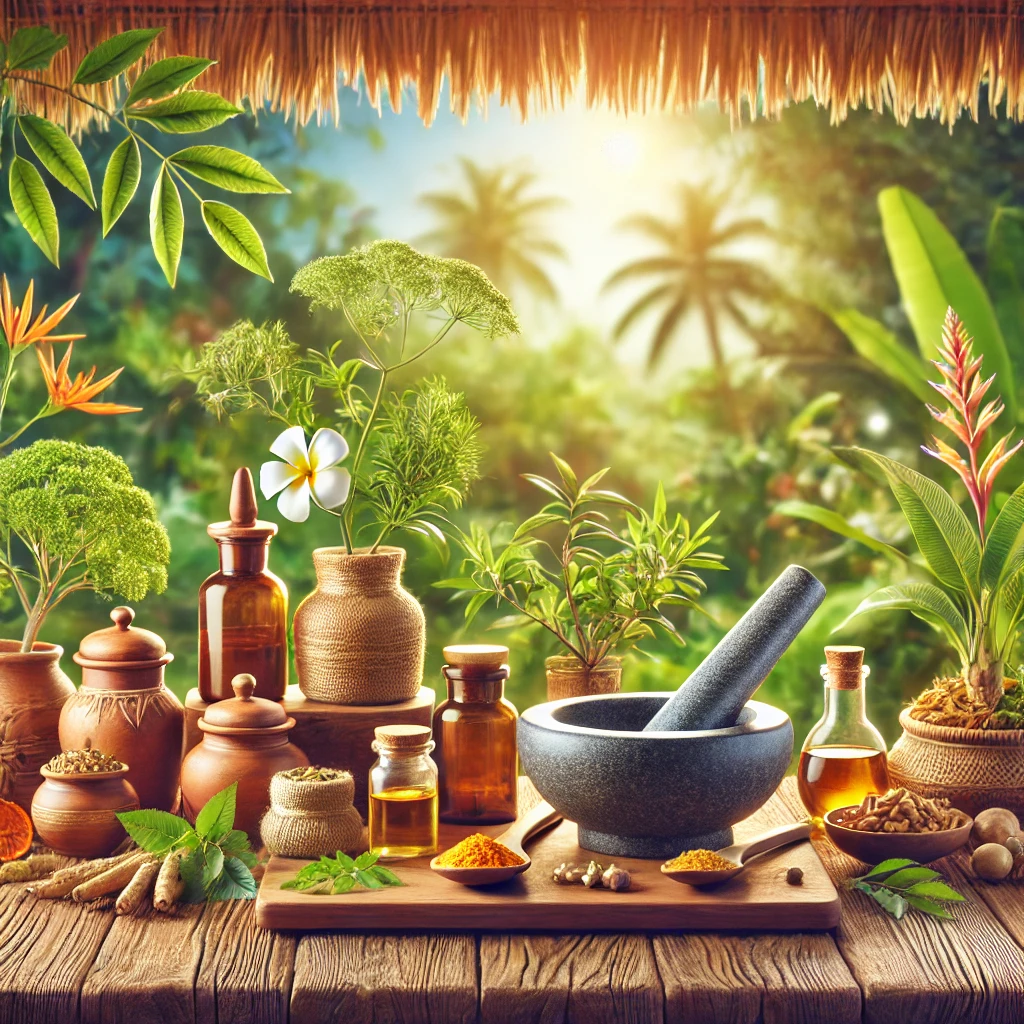How Ayurveda is Shaping the Future of Preventive Healthcare

Strong 8k brings an ultra-HD IPTV experience to your living room and your pocket.
Ayurveda: A Holistic Approach to Health and Wellness
Ayurveda, the ancient system of natural healing, has been practiced for over 5,000 years. Rooted in Indian traditions, Ayurveda emphasizes balance between body, mind, and spirit to promote overall health and well-being. This holistic approach integrates diet, herbal remedies, yoga, and lifestyle modifications to address both prevention and treatment of ailments.
Origins and Principles of Ayurveda
Ayurveda originates from the Vedic texts and is based on the concept of balancing the three doshas: Vata, Pitta, and Kapha. These doshas represent different energies in the body and influence an individual's constitution.
Vata (Air and Space): Governs movement, circulation, and creativity.
Pitta (Fire and Water): Regulates metabolism, digestion, and intelligence.
Kapha (Earth and Water): Controls strength, stability, and immunity.
When these doshas are in harmony, the body functions optimally. An imbalance can lead to various health issues, which Ayurveda seeks to correct through personalized treatment.
Ayurvedic Diet and Nutrition
A core principle of Ayurveda is eating according to one's dosha type. This means consuming foods that balance inherent tendencies and avoid aggravating existing imbalances.
Vata-pacifying foods: Warm, moist, and nourishing foods like soups, cooked grains, and root vegetables.
Pitta-balancing foods: Cooling and calming foods such as fresh fruits, dairy, and leafy greens.
Kapha-reducing foods: Light, dry, and spicy foods including legumes, cruciferous vegetables, and warming spices.
Additionally, Ayurveda emphasizes mindful eating, proper food combinations, and maintaining a strong digestive fire (Agni) to ensure optimal nutrient absorption.
Herbal Remedies in Ayurveda
Ayurveda extensively uses medicinal plants and herbal formulations to treat ailments and enhance vitality. Some popular Ayurvedic herbs include:
Ashwagandha: Known for its adaptogenic properties, it helps combat stress and improve strength.
Turmeric: A powerful anti-inflammatory and antioxidant that supports immunity and digestion.
Tulsi (Holy Basil): Supports respiratory health and reduces stress.
Triphala: A combination of three fruits used for detoxification and digestive health.
Herbal decoctions, powders, and oils are commonly prescribed to restore balance and strengthen the body's natural defenses.
Ayurvedic Therapies and Treatments
Beyond diet and herbs, Ayurveda incorporates a variety of therapeutic practices, including:
Panchakarma: A detoxification and rejuvenation therapy that includes treatments like oil massage, steam therapy, and nasal cleansing.
Abhyanga: Full-body oil massage that improves circulation, reduces stress, and nourishes the skin.
Shirodhara: Pouring warm herbal oil over the forehead to calm the nervous system and enhance mental clarity.
Yoga and Meditation: Integral to Ayurveda, these practices help balance the mind, body, and spirit.
Ayurveda and Modern Science
With increasing interest in natural healing, Ayurveda is gaining recognition globally. Scientific studies are exploring its efficacy in treating chronic conditions such as diabetes, arthritis, and stress-related disorders. Research has confirmed the benefits of Ayurvedic practices, leading to their integration into complementary and alternative medicine.
Sustainability and Ayurveda
Ayurveda promotes sustainability through the use of natural ingredients, eco-friendly practices, and a focus on harmony with nature. Ethical sourcing of herbs, conservation of medicinal plants, and traditional farming methods align with modern sustainability efforts.
Read More: https://www.marketresearchfuture.com/reports/ayurveda-market-6166
Ayurvedic Lifestyle and Daily Practices
Incorporating Ayurveda into daily life involves small yet effective changes that promote long-term wellness. Some essential Ayurvedic lifestyle practices include:
Dinacharya (Daily Routine): A structured daily routine that includes waking up early, oil pulling, tongue scraping, and yoga to maintain balance.
Rasayana (Rejuvenation Therapy): Use of herbal tonics and therapies to slow aging and boost vitality.
Pranayama (Breath Control): Breathing exercises that help regulate stress, improve lung function, and enhance energy levels.
Sound Therapy and Mantras: Reciting mantras and listening to specific vibrations can help harmonize mental and emotional states.
Note: IndiBlogHub features both user-submitted and editorial content. We do not verify third-party contributions. Read our Disclaimer and Privacy Policyfor details.


